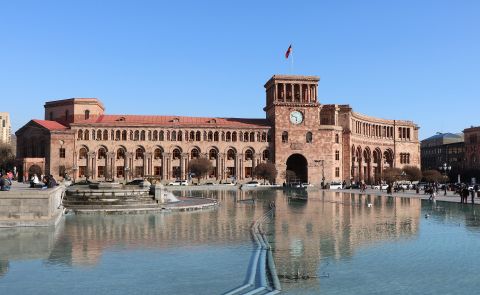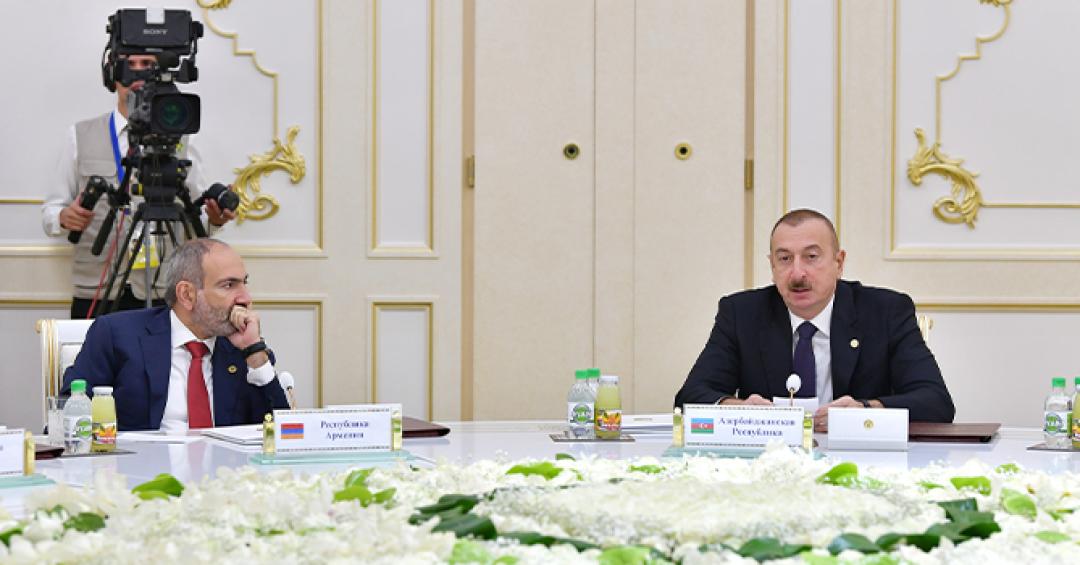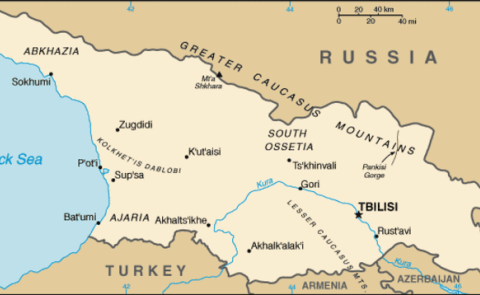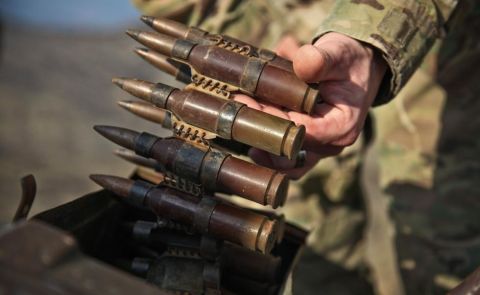
Armenia and Azerbaijan Ready for Direct Peace Talks

On November 21, the Azerbaijani Foreign Ministry reported that Azerbaijan and Armenia are responsible for continuing the peace process, including choosing a mutually acceptable location or deciding to hold a meeting on the state border. "Azerbaijan is ready for direct bilateral negotiations with Armenia to conclude a peace treaty as soon as possible. We believe that the countries should decide together on the future of relations. We urge the Armenian side not to allow new unnecessary delays and hope that Armenia will respond positively to this call to start negotiations in the near future," the Azerbaijani Foreign Ministry pointed out.
Armenia reiterated its dedication to normalizing relations with Azerbaijan and fostering peace and stability in the South Caucasus in response to Baku’s proposal for direct talks with Yerevan.
In its statement, the Armenian Foreign Ministry highlighted Armenia’s previous willingness to review Azerbaijan’s proposals despite the humanitarian crisis resulting from the blockade in Nagorno-Karabakh. It pointed out Azerbaijan's refusal to participate in scheduled meetings at the heads of state level, emphasizing Armenia’s continuous efforts to work on the agreement and its constructive response by sending comments on the draft. Armenia expressed readiness to negotiate based on mutual recognition of territorial integrity, the Alma-Ata Declaration for future delimitation, and unblocking regional communications concerning sovereignty, jurisdiction, equality, and reciprocity.
“The Armenian side continues to believe that, despite all the difficulties and challenges, there is a real chance of establishing peace between the two countries, which can be implemented if both sides have political will. The Armenian side continues to demonstrate such will. One of its manifestations is that Armenia proposed to Azerbaijan to hold a meeting of the delimitation commission on the state border between the two countries,” the statement concluded.
Armenian opposition MP Armen Rustamyan rejected the idea of direct Armenia-Azerbaijan negotiations, deeming them “dangerous.” According to Rustamyan, Baku aims to intensify pressure on Yerevan to extract further concessions.
Rustamyan, a representative of the largest opposition “Hayastan” faction, expressed the view that Azerbaijan’s demands are incompatible with Armenia’s interests. He cautioned against bilateral negotiations under these circumstances, citing the potential danger. Rustamyan believes Azerbaijan might use the threat of a new war to secure additional concessions from Armenia.
The MP argued that Baku had already achieved its goals in Western-mediated talks and was now seeking to advance its demands through direct negotiations, potentially with Russia hosting the discussions.
As confirmed by Foreign Ministry spokesperson Ani Badalyan on November 23, Armenia and Azerbaijan are scheduled to engage in discussions on border delimitation at the end of November.
“According to the preliminary agreement, the next meeting of Armenia’s Commission on State Border Delimitation and Border Security between the Republic of Armenia and the Republic of Azerbaijan and Azerbaijan's Commission on State Border Delimitation between the Republic of Azerbaijan and the Republic of Armenia will take place at the state border between the two countries on November 30,” Badalyan said in a statement.
Armenia's Deputy Foreign Minister, Mnatsakan Safaryan, further stated that specific issues in the negotiations between Armenia and Azerbaijan require the involvement of mediators. Safaryan noted that particular matters, such as the rights of the forcibly displaced population of Nagorno-Karabakh, are among those demanding the involvement of mediators. Safaryan emphasized Armenia’s importance attached to the presence of international mechanisms in addressing this issue. Additionally, he highlighted that other issues demand guarantees in the negotiation process.
Fuad Huseynaliyev, the Director of the Baku based Report Information Agency, known for its affiliation with the government, said that Azerbaijan offered Armenia the choice of a mutually acceptable venue or to decide on meeting at the state border. "If Yerevan wants peace, this is the best proposal," he added. According to him, not the essence but the location of the negotiations is essential for Armenia at the moment: "After the biased position of the US against us, it is clear that the Washington platform has collapsed. Azerbaijan will not go to any negotiations in the United States. We see the bias in Europe, mainly France, these days.
For this reason, the Brussels format is actually in question. It is known that the official Yerevan avoids the platforms offered by Russia in recent times. That's why the Moscow talks are not possible, either." He noted that if the two countries sign a peace agreement, it will be reported to international platforms - the United Nations, the European Union, and other power centers: "Besides, the document must be ratified in the parliaments of both countries. Therefore, there is no need for another country to play a guarantor role in the peace agreement."
See Also


BP Plans Second Deep-Gas Production Well at Azeri-Chirag-Gunashli

Separatist Abkhazia and Russia Reaffirm Strategic Partnership in Moscow Meeting

Weekly Brief on Military Situation in South Caucasus Countries (June 2–8, 2025)

Armenia–Russia Trade Hits $12 Billion in 2024, Up 60%

